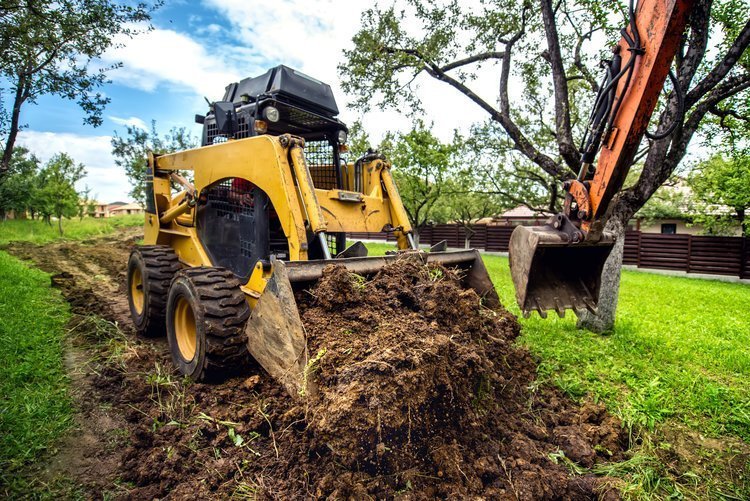Landscapers Rely on Excavation to Ensure a Hollis, NH Landscape Design Stands the Test of Time
When initiating a landscaping project in Hollis, NH, the foundational step is often excavation. It's not just about moving earth; it's about setting the stage for a landscape that lasts. As a property owner, understanding the importance of this process will give you a clearer insight into the meticulous care a landscaper invests to ensure your landscape design endures the changing seasons and years to come.
Understanding the Role of Excavation in Landscape Design
Excavation is the act of removing soil, rock, or other materials from a site to form an open face, hole, or cavity. In the context of landscaping, it's often the preliminary phase, and its significance cannot be overstated. Proper excavation ensures:
Level Ground - Even surfaces are essential for most landscaping elements, be it a patio, walkway, or lawn. Uneven terrain can lead to water pooling or uneven settling of landscape features over time.
Effective Drainage - Landscaping isn’t just about aesthetics; it’s also about functionality. Proper excavation can aid in guiding water away from key areas, preventing erosion and maintaining the integrity of your landscape features.
Optimal Soil Conditions - By removing the top layer of soil, often filled with organic material that can shift over time, excavation ensures that whatever is built on the cleared area has a stable base. For planting-heavy designs, this also provides an opportunity to introduce soil tailored to the specific needs of the plantings you choose.
Choosing the Right Excavation Method
There are different methods of excavation, and the choice largely depends on the specific requirements of your landscape design. Here are some common excavation types:
Topsoil Excavation - This is the removal of the topmost layer of the earth, primarily consisting of soil and any vegetation. It's typically used to clear land for landscaping that requires a clean slate.
Earth Excavation - This method delves deeper into the ground and is primarily used to form the foundation for roads or to carve out space for larger landscape features.
Rock Excavation - If your property has a significant amount of rock, specialized equipment is used to remove it. This ensures that the land is suitable for landscaping purposes and that any features installed won’t shift due to rock movement beneath.
Benefits of Proper Excavation
By ensuring that excavation is conducted thoroughly and appropriately for your specific landscape design, you stand to gain:
Longevity - A landscape that’s built on a well-prepared foundation is more likely to stand the test of time. Proper excavation minimizes the chances of features sinking, shifting, or eroding quickly.
Cost Efficiency - Addressing issues such as poor drainage, uneven ground, or unsuitable soil conditions at the onset can save you significant expenses in repairs and modifications in the future.
Enhanced Functionality and Aesthetics - With a level ground and optimal drainage, every feature in your landscape can function as intended. Plus, when features don’t warp or shift due to foundational issues, the aesthetic appeal of your landscape remains intact for longer.
When embarking on a landscaping project, consider the hidden groundwork as much as the visible design. Just as the roots anchor a tree, the excavation process ensures the stability and endurance of your landscape. Engaging with the intricacies of this foundational step is not just about immediate results but about creating an environment that flourishes continuously. In our region, where each season brings its own set of challenges, a landscape anchored by thorough excavation is a testament to foresight, craftsmanship, and dedication to lasting quality.
Related: REASONS A LANDSCAPER WORKS CLOSELY WITH EXCAVATING CONTRACTORS IN THE PETERBOROUGH, NH AREA

